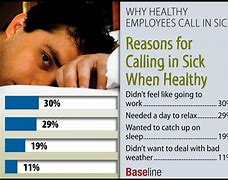Below is a review of the posts (on Facebook, LinkedIn, and Twitter) from the past week. You can check out the full posts by clicking on the links.

In the post on Sunday 10/31/2021 we saw Dollar General accused of age-based harassment, retaliation in EEOC lawsuit. The suit was filed October 1st. It alleges that the company allowed a regional director to harass subordinate district managers based on age – and more (yes more) as noted in the post). So, what happened? A group of district managers, all older than 50, accused the regional manager of harassment by calling them “grumpy old men” and (yep, the “more” is in the post). The response by the regional manager? “Young blood” was needed and … see the post. One district manager quit and reported the allegations. What happened to the other district managers? See the post. The EEOC’s suit seeks monetary and non-monetary relief. Dollar General did not respond to a request for comment.
TAKEAWAY: Train, train, train your employees (especially managers) not to discriminate based on age (or any other protected characteristic). It might save you a lot of headache and money down the road.

The post on Monday 11/01/2021 reminded us that FMLA does not prohibit termination for failure to comply with call-in requirements. The case underlying this post comes from the 6th Circuit, but of course the FMLA applies everywhere, so pay attention. The employer here, a healthcare group, had an attendance policy requiring employees to notify their supervisor at least 2 hours before shift if they would be absent. Failure to call in was a no-call/no-show. Two no-call/no-shows would result in termination. All good, right? Let’s see. Amity Koch was a nurse with a history of attendance issues. Her history, which sets the stage for what was to come, is in the post. On August 14, 2017 (yes cases take a long time to wind through the various court levels), she was scheduled to start work at 7:00 am. At 7;24 am she told her supervisor she had a doctor’s appointment for a wrist injury and would come to work after that. What she did (and did not do) later that day and the next day is in the post. She was almost terminated. On August 16, she missed her shift but claimed she sent a text, the contents of which are in the post. Her supervisor denies receiving the text. When she again failed to show on August 17, her supervisor sent the termination papers to HR. On August 18 she brought in a doctor’s note excusing her from work that week (and noting the basis for treatment as in the post). Termination occurred on August 20. She sued, claiming retaliation and interference with her FMLA rights. What she had to prove is noted in the post (and, again, is the same everywhere). She did not carry her burden as to the initial notice (the wrist injury, which is explained in the post) or her final argument, that her condition prevented her from giving adequate timely notice. Why that one failed – BIG TIME – is in the post and gives a chuckle.
TAKEAWAY: While employees don’t have to mention the FMLA or use any special language, they must give enough detail to put the employer on notice that the FMLA might apply and leave may come into the picture.

The post on Tuesday 11/02/2021 told us EEOC sued Geisinger Health System and affiliates for disability discrimination and retaliation. What is in the water all of these healthcare employers drink? The post involves another suit filed by the EEOC on October 1st, this time in the Eastern District of Pennsylvania. So, what happened to lead to suit? Geisinger requires employees with disabilities to compete for reassignment to a new position even when that is needed as a reasonable accommodation for the disability. It also (allegedly) misrepresents and manipulates employment opportunities so as to prevent disabled employees from obtaining accommodations and more as noted in the post, all in violation of the ADA. A long-time RN (more than 30 years!) needed leave for a disability. Geisinger refused to hold her job open until she could return to work but instead posted her position as a vacancy shortly before she was expected to return from leave. And when she was released to return to work, Geisinger allegedly did what is noted in the post. The nurse then applied for numerous vacant positions for which she was qualified, but Geisinger’s actions again came under scrutiny. See the post as to what it did. And allegedly she was not the only disabled employee to whom Geisinger subjected its actions. When conciliation failed, the EEOC filed suit. Stay tuned.
TAKEAWAY: Remember that the ADA requires employers to provide a reasonable accommodation unless it would cause an undue hardship; the starting point should be how the qualified, disabled employee can be accommodated. Consult an employment lawyer for assistance.

The post on Wednesday 11/03/2021 explained the three reasons condo (and HOA) fees are skyrocketing in the US – up 19 percent this year! Why? More people staying at home and the newfound attention to safety standards (as a result of the unfortunate Surfside condo collapse). According to Zillow, the monthly median condo fee increased 19% from 2020 to about $451 in August 2021. Part of the increase is due to inflation and part to other things noted in the post. Why does this matter? Because about one-quarter of the US population lives and works in homes in community associations, with HOA’s about 60% of that and condos the rest. Those associations collected a huge amount in assessments from 2019-2020 (the latest data available); the actual mind-boggling number is in the post. Those assessments are used to utilities, security, common area maintenance, and so much more as noted in the post. Geography can play a big part in the assessment too; for example, 2/3 of Miami condos are at least 30 years old and require higher levels of maintenance, whereas San Francisco assessment rates actually decreased year over year. Association boards need to budget properly, bot for regular operations and reserves for capital repairs/replacements; how that can lead to increased assessments is explained in the post.
TAKEAWAY: Believe it or not, it is not necessarily a good thing when your Association tells you there will be no dues/assessment increase; find out why and consult an experienced community association lawyer.

In the post on Thursday 11/04/2021 we saw that after escalating for years, a neighborhood feud over HOA culminates in killing caught on video. Jurors learned about this neighborhood feud as part of the trial of the alleged gunman. The video (Ring doorbells do have some use!) showed Javon Prather waiting on his next-door neighbor’s stoop, the front door opening, and a gunshot hitting him in the stomach. He turned, stumbled, and leaped down Michael Hetle’s front staircase as Hetle came out of the home with a handgun, still firing. Prather collapsed in Hetle’s driveway; Hetle, still on his stairs, fired another shot into Prather who was prone. And then Hetle did something (more) surprising – see the post. Hetle is a NASA executive and former police officer. So why was there bad blood that culminated in this awful tragedy? It had to do with the HOA and possibly other things. See the post for the details. Or so said the prosecution. Hetle’s defense presented a totally different story, that Prather was the aggressor and had for years threatened, stalked and harassed Hetle. Then the day of the killing Hetle sent an email to the HOA – its prescient contents are noted in the post – after continued unsettling actions by the Prathers (yep, detailed in the post). Each side portrayed the email to fit its case. Hetle’s defense also brought in the background between him and the Prathers; that too is in the post along with actions by the Prathers (who are clearly not innocent lambs). The HOA even got involved at one point as noted in the post.
TAKEAWAY: Community associations are to provide a structure for those who want that type of community, but they are not immune from the bad things that happen in life. What is important is that the association fulfills any legal duty it may have to residents and owners.

The post on Friday 11/05/2021 explained that general statements are insufficient to establish age discrimination. Here we had a fleet safety manager employed by one of the world’s largest retail employers. He had received three written warnings for policy violations (details of the third of which are in the post). According to the employer’s policy, the next violation might result in termination. As fleet safety manger, one of his primary duties was to identify drivers that did not possess a Hazardous Materials Endorsement (HME) and inform Transportation Operations Managers. About a year after the third warning, he violated this policy (details in the post). The employer gave him a choice (also in the post). He sued for age discrimination. After summary judgment for the employer, he appealed. The bases for his appeal are listed in the post. The appellate court found that the evidence he submitted (see the post) was irrelevant for the reasons noted, including lack of timeliness and context. Summary judgment for the employer was affirmed.
TAKEAWAY: Before taking adverse action against an employee, make sure there is a valid legal basis for the action – and document it. It may prove to be the linchpin in a later lawsuit.

Finally, in the post yesterday 11/06/2021, we saw that Excentia Human Services was sued by EEOC for disability discrimination. (Clearly too they drank from that health services water source …). Here the EEOC alleges that the employer discriminated against an applicant with cerebral palsy based on her disability. Stevie Baum was qualified for a preschool teacher assistant position; she went through two successful interviews. But when she reported to the worksite, things changed. Excentia did not hire her; the reason for its decision is in the post. She asked them to reconsider or look at other employment opportunities for her, but it refused. So now it faces a suit by the EEOC for an alleged violation of the ADA; this suit too is in the Eastern District of Pennsylvania. What the EEOC seeks by way of relief is noted in the post.
TAKEAWAY: Employers cannot presume that an applicant (or employee) cannot perform the essential duties of a job; to the contrary, they must presume the person CAN unless and until an accommodation is requested. Know the law (and get legal assistance when needed).

 York, Pennsylvania 17403
York, Pennsylvania 17403